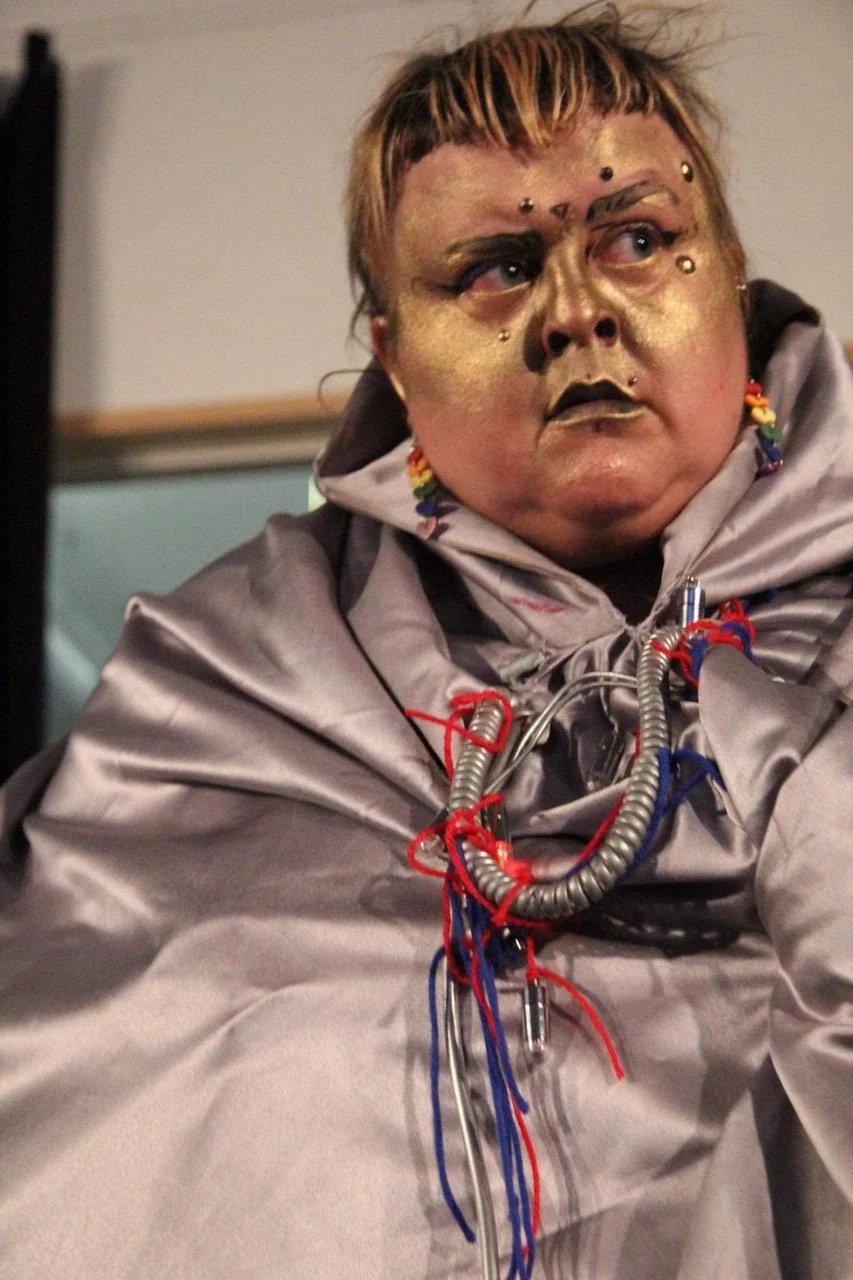Witch at NC Stage Co.
Witch won’t make you squirm. It won’t gross you out. It won’t give you the heebie-jeebies — at least it didn’t do these things to me. This isn’t some A24 production, so be neither lured nor repelled by any preconceived association with the 2015 film of a somewhat similar title.
Instead, Jen Siverman’s play, currently running at NC Stage Company, is simultaneously an irreverent romp (albeit with bloody implications) and a devilish deconstruction of the old “sold my soul to the devil” trope.
Witch is billed as Silverman’s retelling of a 1621 tragedy, The Witch of Edmunton, and from what I can gather, that text was dire and dark indeed. Witch, on the other hand, spends much of its stage time embroiled in a comedy of errors festooned with snappy dialog and farcical hijinks.
First things to note: While Witch is set in medieval times, as indicated by period-accurate dress (courtesy of costume designer Victoria Depew), the dialog is decidedly modern — an anachronistic device that pays off on the humor front. In fact, the language is uber-contemporary, full of verbal fillers and hashtag-able phrases. The dialogue keeps the mood light and hyper accessible, but is used in an organic way that doesn’t feel overwrought, and it doesn’t take strain to align the modern casual American parlance with the period finery.
The story’s setup certainly has plenty of the trappings that could make people get medieval — the royal Sir Arthur Banks (Philip Kershaw) pondering his choice of an heir between son Cuddy Banks (Daniel Henry), who is conflicted about his desires while carrying a torch for Winnifred the housekeeper (Gabrielle Story), and adopted son Frank Thorney (Anthony Johnson), who may have already laid claim to her.
Within this melange lie the kind of conflicts you can see coming a furlong down the lane, even without the devilish interference of fast-rising soul-prospector Scratch (Arusi Santi). But interfere he does, fanning the flames of gossip, jealousy, and insecurities. And with this crew, there seems to be no shortage of prospects in that department.
The one nut Scratch can’t seem to crack is town recluse Elizabeth Sawyer (Callan White), an ironic development since she’s already been shunned and reviled by her community and branded as our play’s namesake “witch.” Not only is Elizabeth not terribly motivated by ambition, she’s not terribly convinced of the soul’s value to begin with. While the misadventures and infighting among the royal family make for a campy romp, it’s between Scratch and Elizabeth where the meat of Witch really lies. As prolific a salesman Scratch is, he’s unequipped to handle Elizabeth’s honest — if cynical — counters to his advances. And the most acute transformations in the play happen during these exchanges.
Santi hits every mark as Scratch, playing the upwardly-mobile minion with a stand-up comedic confidence. And Sawyer, without much in the way of movement or dramatic embellishments, is both disarming and disrupting with her quiet composure.
Witch is two plays in one — a sitcom style pageant and a deeper dismantling of the very manipulations that make such a comedy possible. And Julie K. Ross’ spare set — a bar, a few stools, a couple of chairs and a fireplace — makes plenty of room for the verbal jousting to occur.
The cast of the royal family is entertaining and built for laughs — Kershaw’s royal patriarch is both oblivious and needling, and Henry’s Cuddy spins frantically between his contrary yearnings. But I would have showed up just to see Santi and White do their thing. While much of the play exists as an entertaining, almost Seinfeldian distraction where any topic can be talked to death, the discourse between Scratch and Sawyer strikes deep, and drives steadfastly toward an uncertain end, one that — just maybe — is enough to make anyone squirm.
Witch runs through Sunday, April 17, at NC Stage Co. For details and tickets, visit ncstage.org.
(Photo courtesy of NC Stage Co.)




